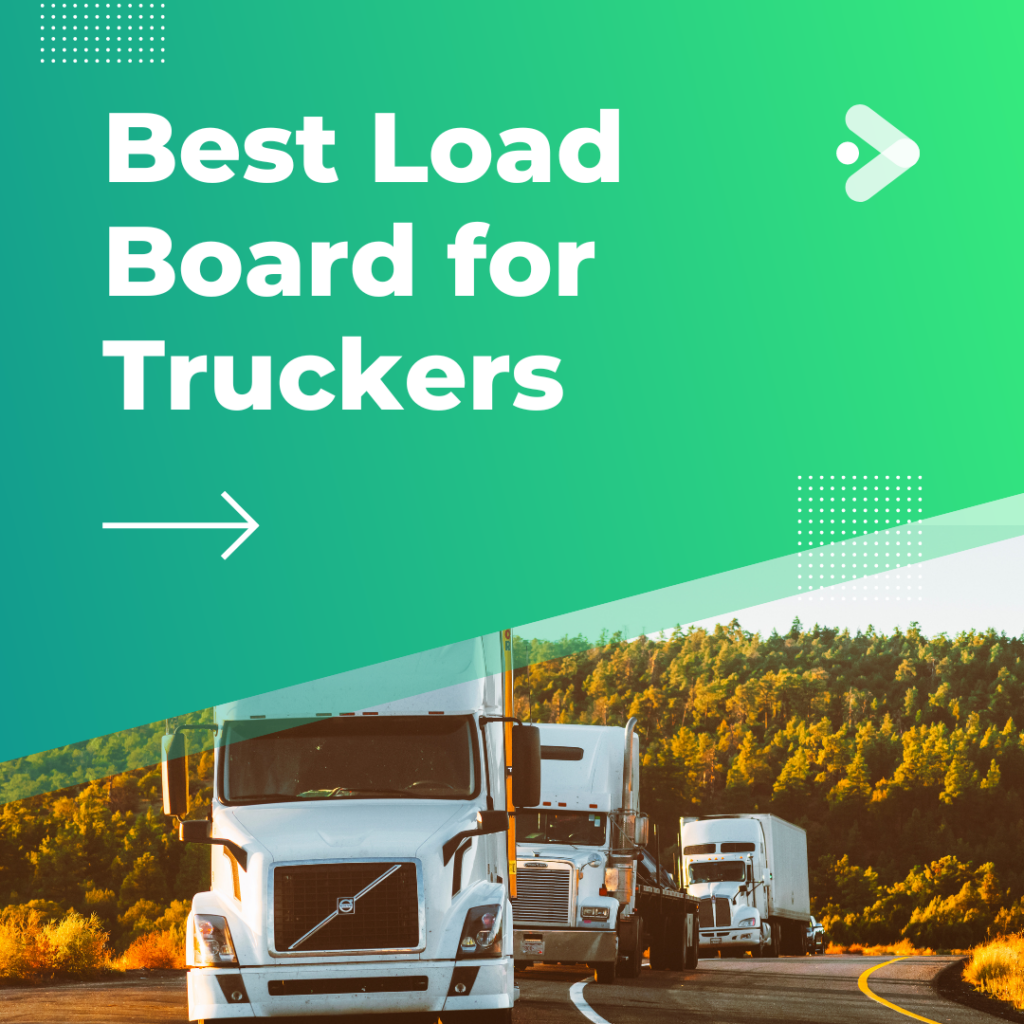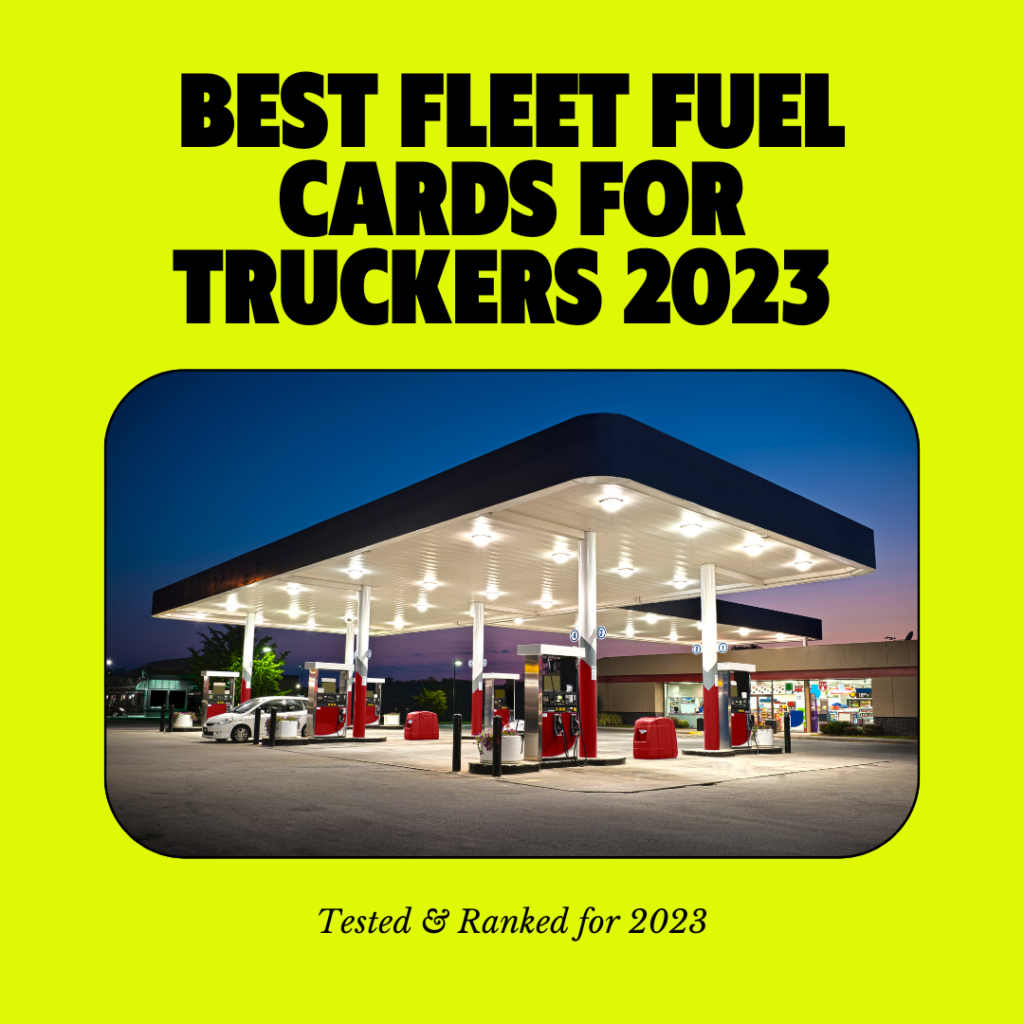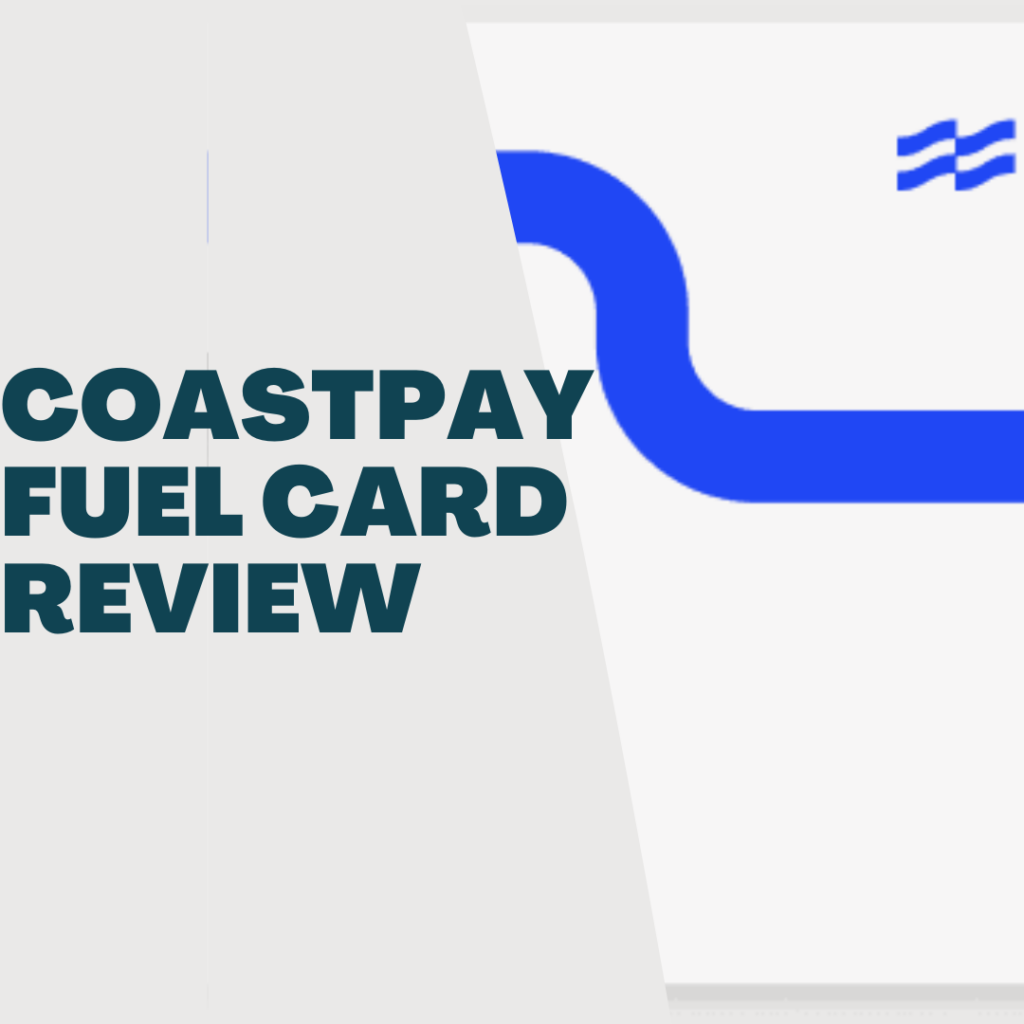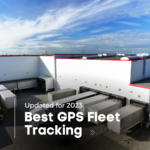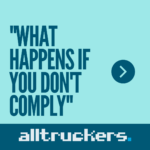In the trucking industry, you have risks. Things like bad weather, delayed shipments, and unfortunately, even accidents can be significant challenges for your business. That’s where commercial truck insurance comes in. Finding the best policy for you and your fleet can be overwhelming. Fortunately, there are several excellent options available and with a little research, you’ll be able to find the right policy to protect you and your fleet.
It’s vital to weigh several factors when choosing a top commercial truck insurance provider. Some things you need to consider are factors such as pricing, coverage options, customer service, and the minor details that can end up saving you money in the long run. Many companies offer affordable insurance policies that are comprehensive and built with trucking companies in mind. With one of these top providers working with you, you can feel confident knowing that you’ve got the best protection on the market.
Before choosing a provider, take your time to assess your and your fleet’s insurance needs. Next, carefully compare each top provider and their services and ask yourself how their services can help you and your business. In doing so, you’ll be making a careful and informed decision that will help keep you and your fleet prepared for any challenges that may come your way.
Understanding Commercial Truck Insurance
Before you choose your coverage, it’s important to learn just what commercial truck insurance is. Each company offers a variety of plans that are tailored toward your specific needs and general needs in the trucking industry. Below are different types of coverage options that are available to trucking companies and each one’s importance for you and your company.
First, let’s talk about what commercial truck insurance is and is not. A commercial truck insurance plan is a combination of various insurance policies that are there to help a company in the trucking business protect themselves, their drivers, and their assets. Most policies cover vehicle accidents, collisions, or any damages that can occur from a wide range of risks.
Commercial truck insurance has its limits. It may be obvious, but don’t count on a commercial insurance provider to cover any damages that were intentional. Also, if your damages exceed your policy limit, you’ll have to pick up the excess costs. Finally, some types of cargo may not be covered, no matter which insurance provider you choose. These types of cargo often include pharmaceuticals, animals, explosives, and certain hazardous materials. However, you may find extra coverage options available that may include these items. As always, ask questions and shop around to get the coverage you need.
Why do I Need Truck Insurance?
Insurance is crucial for any owner of a trucking business to protect themselves and their assets. Instead of leaving anything to chance, you can make sure everything is protected, from driver injuries, lost or damaged assets, or unforeseen challenges that could end up costing you more than you could cover on your own. In short, having a great insurance policy that covers all your needs will save you tons of money and, in the end, help keep your business up and running strong.
If you’re a trucking company, you will have to prove to the federal and state government that you have enough coverage to insure your vehicles and their freight value. They’ll also want to see that you’re covering any third-party liability claims in the event of an accident that was caused by your driver or vehicle.
Truck Insurance Coverage 101
There are several coverage options that any trucking company needs to know. Major insurance providers who work with the trucking industry will offer great rates for the following coverage options.
Liability Coverage for Truckers
Liability coverage is one of the most important parts of your commercial truck insurance policy. This covers you in the event of an accident involving your company’s truck and your driver’s actions on another business’ premises. This coverage will cover the costs of damages to third parties, including property, injuries, or possible legal expenses if your driver is found at fault. Many insurance policies also cover medical payments or damages on premises that you rent. The limits to your coverage will depend on several factors including, your fleet’s size.
Liability coverage is required for your fleet. According to the Federal Motor Carrier Safety Administration (FMCSA) the amount you need depends on the type of goods you transport. If you’re using the interstates to haul your general freight, you’ll need a minimum liability coverage of $750,000. The minimum for transporting oil or fuel is even more, at $1,000,000 minimum coverage and $5,000,000 for hazardous materials. These include explosives, hazardous gasses, radioactive materials, and other poisonous substances. Your minimum coverage will be only $300,000 if your vehicle weighs under 10,001 lbs and is not shipping any hazardous materials.
Motor Cargo Insurance
Getting coverage for your motor truck cargo is also required by law for some types of cargo. This type of coverage will protect you and your business if there’s any damage or loss of the goods you’re transporting. This type of coverage is required by the FMCSA if you ship household goods and will require a minimum of $5,000 per vehicle or $10,000 per occurrence.
Even if the type of goods you’re shipping do not require motor cargo insurance, it’s a good idea to get it anyway because many brokers and shippers will choose not to work with you if you don’t have this type of coverage.
Physical Damage Coverage
Your trucks are your most important and expensive asset. Having physical damage coverage is crucial to protect your trucks and trailers from unforeseen damages which would cost you hundreds of thousands of dollars without insurance. This type of coverage protects your fleet in case of physical damage caused from collisions, vandalism, fires, or theft. Although the FMCS doesn’t require this type of coverage, it’s a good idea for truck owners and fleet operators that want to protect their assets.
You can divide physical damage coverage into two types: collision and comprehensive. Collision covers the costs of damages incurred on your truck from an accident, no matter who is at fault. Comprehensive, on the other hand, will cover costs from everything else such as fire, theft, vandalism, and natural disasters.
The top insurance companies will have a physical damage insurance policy that will cover pretty much anything that can go wrong when you’re on the road. Below are a few of the many coverages included in most policies.
Emergency Costs
These are the costs of getting your driver food, transportation, and adequate shelter. If your driver is on a long distance job and they get in an accident, emergency costs in your physical damage coverage will help them out.
Towing
If there’s an accident, towing your truck and/ or trailer can be incredibly expensive. With physical damage coverage, you’ll cover the costs of getting your vehicle to the nearest garage. Or, with extended towing options, the costs to bring your truck back to your designated mechanic will be covered.
Storage and Downtime
Storing your damaged vehicle and inoperable downtime can end up costing you a fortune. With physical damage coverage, you’ll cover the costs of keeping your damaged vehicle’s storage costs and the downtime caused by it being off the road.
Non-Trucking Liability Coverage
Non-trucking liability, or deadhead or bobtail coverage, covers your drivers when they are not actively transporting freight. If you lease your trucks to other carriers or use your trucks for personal use at any time, non-trucking liability coverage could be a good thing to add on to your policy.
Let’s say that you, the fleet manager, ask a driver to run an errand when they’re not on the clock for a shipment. If they get in an accident, non-trucking liability coverage will cover the costs for damages. This includes other damages to a third party’s property and assets.
Trailer Interchange
If you deal with trailer-interchange agreements, you’ll want to consider trailer interchange coverage for your policy. A trailer-interchange agreement is when two trucking companies form a written agreement for one trucking company to use the trailer of another. Trailer interchange coverage will cover any costs for damages, repairs, or replacements for the non-owned trailers.
Other types of Insurance
On top of insurance for your truck and goods, you’ll need other types of coverage for your company and your fleet. These coverages will keep the costs down when things go wrong outside of your vehicles.
- Workers Comp helps cover any disability and medical bills that come up from an employee injured on the job. Accidents happen. Making sure your employees are covered in case of an accident will give both you and them peace of mind knowing that they can get the treatment they need and be back on the job safely.
- Property Insurance is crucial if you own or rent your space. This includes parking structures, storage facilities, and even your office. If something goes wrong in these facilities, property insurance will help cover you and business.
- Providing Health Insurance for your employees is often one of the most costly yet important types of insurance coverage for a successful business. If you’re looking to hire full-time employees that will stick around, providing competitive health insurance is a great way to keep them safe and satisfied with their job.
By knowing these types of commercial truck insurance coverages in and out, you’ll be able to make a more informed decision about what policy you and your company needs. This way, you’ll protect your business, meet legal requirements, and stay ahead of the game when it comes to risk management.
Top Commercial Truck Insurance Companies
In the trucking industry, there are several top-notch insurance companies that will work hard to meet your needs and give you and your fleet the coverage it deserves. By taking your time and finding the policy and provider for your fleet, you’ll be able to rest easy, knowing that your fleet and assets are in good hands.
CoverWallet
Few options are as easy to use and get started as CoverWallet. The company is actually an aggregator, meaning it’s an intermediary between you and the insurance company that’s going to offer you the best prices and coverage for your needs.
Getting started is quick and easy and you can complete the entire application process online in minutes. CoverWallet will help you find coverage that’s tailored to your needs. It analyzes your risks, company size, and cargo to find a coverage that’s right for you and your fleet. After answering some questions about your business, CoverWallet will display several top insurance providers and their prices. This makes CoverWallet an easy-to-use option to compare the best plans on the market.
CoverWallet started in 2015 and has since incorporated state-of-the-art algorithms and AI into their platform. With this technology, you can expect to get multiple quotes on your mobile device or PC in no time. Its quotes cover the entire spectrum of trucking coverage, including general liability, non-trucking liability, and physical damage coverage.
The price of CoverWallet’s options depends on what type of vehicles you drive. For example, insurance for bobtail drivers will start at around $29 per month. Box truck insurance starts at $216 per month for a 16’ box truck and $231 per month for a 26’ box truck. Hot shot truckers needing non-liability coverage will see prices starting at $45 per month and $208 per month for physical damage insurance.
PROS
- Quick and easy quotes from multiple providers
- Talk to experienced advisors who will give you 1 on 1 support through the buying process
CONS
- CoverWallet is an aggregator and not an individual insurance company, meaning that you’ll be going through a middleman rather than directly through a provider
Progressive Commercial
For over 50 years, Progressive has been covering companies in the trucking industry with dependable service and competitive pricing. Progressive specializes in all the coverage you need, including comprehensive and collision, general liability, non-trucking liability, trailer interchange, cargo, and more.
Progressive is one of, if not the largest insurance provider for the trucking industry, covering businesses in all 50 states. No matter what you drive, from box trucks to tractor trailers, Progressive will cover you.
If you’ve been in business for many years and have experienced drivers with excellent driving records, you can receive significant discounts from Progressive. You’ll get help with state and federal filings for free and enjoy other extra features. Progressive offer very flexible payment options as well, so no matter what size of fleet you run, you’ll have plenty of excellent coverage options.
When working with Progressive, you’ll have access to their highly trained agents who will work with you to get a quote based on your business needs. Agents are available 24 hours, seven days a week, to take your claims and questions.
PROS
- Covers a wide range of needs and provides some of the most features available
- Been in business for over 50 years
- Offers federal and state insurance filing for free
- Offers its Smart Haul ® discounts when you use its electronic logging device to exchange driving data
CONS
- There are some poor customer service ratings
State Farm
If you want a highly rated insurance provider that will work with you no matter the size of your fleet, then State Farm is one of the best. With its excellent customer satisfaction and high ratings, you’ll be guaranteed to get excellent service and coverage.
Investopedia voted State Farm as the best insurance provider for small businesses. It also has one of the highest ratings for financial strength out of any insurance provider, which means you’ll never have to worry about your claims.
State Farm offers customizable coverage for box trucks, tractor trailers, and much more, no matter what size of fleet you have. You’ll get a range of liability coverage, comprehensive and collision, personal injury, and uninsured/underinsured motorist coverage, which covers an accident with someone who doesn’t have liability insurance.
State Farm offers comprehensive Distributors Insurance which covers theft, damage to your customer’s property, and fires. You’ll also get coverage for property, business liability, loss of income, cargo, employee theft, computer property, and equipment breakdown.
PROS
- Some of the highest rating for customer satisfaction and finances
- Insurance available in all 50 states
- Works with all companies no matter the size
CONS
- You have to work with an agent to get a quote
Nationwide
Nationwide is one of the oldest commercial insurance providers and continues to be one of the highest rated. No matter where you’re located and no matter the size of your fleet, Nationwide is one of the best in the business.
You’ll get plenty of coverage options, such as collision and comprehensive coverage, liability, bobtail, and motor truck cargo liability. You’ll be covered if your fleet uses box trucks, flatbed freight, auto haulers, and many more. No matter if you transport dry freight, agricultural goods, livestock, or even some hazardous materials, you can find a customizable policy that will fit your needs.
On top of its great coverage, Nationwide offers wonderful discount options. One of these discount options comes from letting Nationwide install HD forward-facing Samsara dashcams on your vehicles. You’ll also get extra discounts from purchasing multiple policies and bundles. If you’re a new company or have newer drivers, you can get some of the best rates in the business from Nationwide.
PROS
- Plenty of discounts available
- Some of the best rates for new drivers
- Large company with great financial rating
CONS
- Some customer service ratings fall below average
The Hartford Commercial
Another great commercial truck insurance company you should consider is The Hartford Commercial. This company has been in business for over 211 years as an insurance provider and has since branched out into many industries, including the trucking industry.
The Hartford Commercial offers affordable and competitive general liability coverage, physical damage, cargo, workers comp, non-trucking liability, property coverage, and much more. Its services are especially competitive in risk management for small to large commercial fleets that cross state lines and transport high value cargo.
No matter if your fleet contains trailers, emergency vehicles, dump trucks, or box trucks, you’ll find a comprehensive and customizable plan that will fit your needs. The Hartford Commercial works really well for larger fleets with complex needs. To help reduce the risks associated with a large fleet, it offers excellent telematics through the FleetAhead program. This program measures your fleet’s driving habits using real-time data that points out risks like speeding, idling, and other unsafe driving practices.
PROS
- Many years in the business
- High financial rating
- Great customer service
- FleetAhead program for risk management telematics
CONS
- No online quotes
- May not be the best choice for small or single vehicle fleets
Acuity
Since 1925, Acuity has been a big player in insurance. Acuity offers several excellent plans for a variety of businesses and fleet sizes. On top of general liability, physical coverage, and cargo, you’ll get extra coverage options, including trailer interchange, bobtail coverage, tow coverage up to a certain mileage limit, rental coverage, and much more. On top of its coverage, Acuity will provide additional services like completing federal and state filings for your business.
Acuity has a high rating for customer satisfaction and financial ratings. Its financial health rating guarantees that your claims will be handled quickly. The company’s mobile app allows its customers to report claims quickly and easily.
What you’ll pay with Acuity depends on several factors, such as business and fleet size, type of freight, and other factors. It does, however, have higher prices than many of its competitors. Acuity is still a great option for coverage, as these rates will depend on several factors. By getting a quote that’s tailored to your needs, you may find that Acuity has the best price for the amount it covers.
PROS
- Covers a wide range of fleet sizes and needs
- Excellent customer service ratings
- Great business accreditation ratings
CONS
- May not be the cheapest option
Sentry
Few insurance providers offer better service for small fleets. Sentry incorporates excellent customer service and individualized options that will help your business get the coverage it needs. The company has been in the insurance business since 1904, making it one o Also, over the last 32 years, Sentry has been rewarded with an A+ rating from AM Best.
Sentry’s network of 65 agencies covers businesses in 50 states. It has a team of local agents that will tailor your policy according to your needs. What’s more, is Sentry’s excellent customer service, which is continuously rated highly. Sentry’s attention to each individual client is one of its greatest strengths, making it a great option for small fleets or individual drivers.
According to its website, Sentry currently insures over 50,000 truckers. Its coverage services include general liability, physical damage, comprehensive and collision, cargo, non-trucking liability, and cyber liability insurance. Sentry also offers workers’ compensation coverage and commercial property insurance.
Sentry’s cost varies a lot depending on your location, fleet size, and other business details. However, it offers wonderful discounts when you work with their partners for safety training, video coaching, drug and alcohol testing, and more.
PROS
- Covers all 50 states
- Individualized and customizable plans
- Excellent customer service
- Good discount opportunities
CONS
- Must work with an agent for quote
- Costs vary depending on your needs and location
Factors to Consider When Choosing Insurance
When choosing your insurance coverage, it’s important to look closely into what your company and fleet’s needs are. By understanding this, you’ll be able to select the right insurance company that will have your back. You’ll also be able to limit risks to your fleet. Below are a few factors to consider when choosing the insurance policy that’s right for you and your fleet.
Coverage Needs
When you’re looking to choose the best commercial truck insurance for your fleet, you first need to figure out what your coverage needs are. Every trucking company is different and will require differing levels of protection.
First off, you’ll need liability coverage legally. This will cover third party injuries and property damage. Next, you may need motor truck cargo, non-trucking liability, rental reimbursement, trailer interchange, and property insurance. Take into account your company’s risk factors like average distance driven, type of goods transported, and any other risks that may pose a threat to your fleet’s assets and personnel.
Deductible Costs
Look closely at how much you can afford to pay for your premium costs vs paying your deductible. You may save money per month by choosing a policy with a higher deductible but in the end you’ll have to be prepared to pay more in the event of an accident, theft, or weather event.
Compare the Pricing and Discounts
When choosing a policy, compare the price you’re quoted based on your needs. Also, look at any discounts you may receive by going with a certain company. Discounts may be available to you based on policy bundles, CDL’s, safe driving, paid in full discounts, and types of deductibles. You can also find providers that will give you flexible payment plans that can help you manage your costs.
There are also plenty of other factors that will determine how much you will pay for commercial trucking insurance. Take into consideration the following factors that may have you paying more for commercial truck insurance.
- Vehicle Types
If you drive a fleet of large semi trucks, you’ll likely pay more for insurance than a fleet of lighter vehicles. This is because it’s more expensive to repair these vehicles and in the unfortunate case of a traffic accident, semi trucks cause more damage.
- Type of Cargo You Carry
Some types of cargo are going to need better coverage. If you’re transporting goods that are potentially hazardous or expensive, your insurance company will have to fork out more money in the case of an accident, damage, or theft. Therefore, they will charge you more for your coverage.
- Driver’s Experience and Accident History
Your driver’s driving history will also have an enormous impact on what you pay for commercial trucking insurance. Insurance companies will see drivers with safe and accident-free histories as less of a liability to cover. That said, if your driver or drivers have a long history of reckless driving, crashes, or other incidents on their commercial or non-commercial driving licenses, then this might significantly raise your rates.
Insurance companies tend to charge new drivers more for insurance than for a well-experienced veteran. Many trucking insurance providers have reservations about insuring drivers with less than two years of commercial driving experience.
- Your Fleet’s Location
What you pay for insurance will vary from state to state. If you’re running your fleet in a state with higher insurance rates, you can expect to pay more. In states like Mississippi and Wyoming, you can expect to pay several thousand dollars less on your local and national premium rates than in states like New Jersey and New York. These prices may be higher for states that experience more severe weather, including severe winters, ice, and storms.
Where you keep your vehicle makes a difference too. If your facility has a secure garage where you store your vehicles, you’ll likely pay a lower rate than if you store your vehicles in public or in an open area. Open spaces are susceptible to theft and weather events that may raise the risk of damages to your vehicles.
- Your Fleet’s Coverage Area
There will be a big difference in insurance costs between a fleet that covers a lot of highway miles vs one that’s more localized. If you’re traveling across state lines and spending more hours on the road, your insurance company will see it as an extra accident risk that will need more coverage.
Check Customer Service and Satisfaction
Costs are one thing and service is another. You deserve quality customer service from your insurance provider, besides great coverage and prices. Research what other customers in the trucking industry have said about each company you’re considering. Some providers have 24/7 call centers that are there to help answer any of your questions. Others use agents to help you on an individual basis, providing extra one-on-one care.
Size and Ratings
Insurance companies come in many sizes and if you run a large fleet or transport expensive goods, it’s important to find a provider that could cover your most expensive losses and meet their policy obligations. Large companies with strong financial standings can pay out claims fast. Do your research to find insurance companies with top financial security and reliability before making your choice.
FAQs
Q: Is Commercial Truck Insurance Required by Law?
A: Yes, liability coverage is according to the Federal Motor Carrier Safety Administration (FMCSA). If you use interstates to haul your general freight, you’ll need a minimum liability coverage of $750,000. The minimum for transporting oil or fuel is $1,000,000 minimum coverage and $5,000,000 for hazardous materials.
Motor cargo is also required by the FMCSA if you ship household goods and will require a minimum of $5,000 per vehicle or $10,000 per occurrence.
Q: How Much Will I Pay For Commercial Truck Insurance?
A: There are many factors that will determine how much you will pay for commercial trucking insurance, including vehicle types, type of cargo you carry, driver’s experience and accident history, your fleet’s location, and your fleet’s coverage area
Q: What Doesn’t Commercial Truck Insurance Cover?
A: Commercial truck insurance will not cover any damages that were intentional. Also, if your damages exceed your policy limit, you’ll have to pick up the excess costs. Finally, some types of cargo may not be covered, no matter which insurance provider you choose. These types of cargo often include pharmaceuticals, animals, explosives, and certain hazardous materials.

